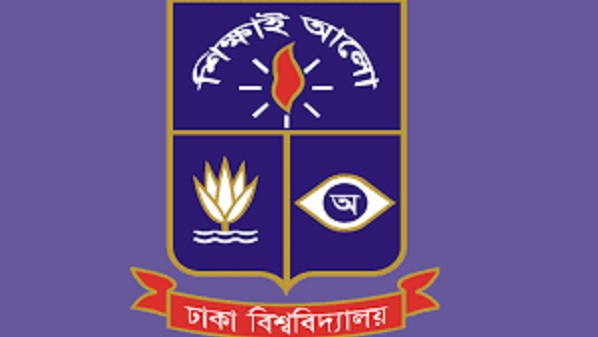University-Industry Collaboration to Enhance Quality of Higher Education

Dr. Md. Abu Taher:
Today we live in a global village where economic pursuits have become highly competitive. Productivity and economic growth solely depend upon new knowledge generated in universities. Creativity and innovation are the basis of new knowledge and very critical for the socio-economic development of the country. The Bangladesh government has successfully implemented different projects to ensure the quality of higher education as it transforms the traditional society into a knowledge-based society and forms the basis for creativity and innovation. Improving the quality of university graduates is of vital importance in this context. This issue has been one of the debating issues discussed among academia and professionals in Bangladesh.
In the Perspective Plan 2010-2021 aligned with the Bangladesh Vision 2021 and Sustainable Development Goals (SDGs), need-based higher education is highly emphasised. As a strategy, University-Industry Collaboration (UIC) is being considered an urgent need which would ultimately help develop need-based competitive graduates. UIC is in practice in the developed countries for a long time. Both universities and industries are mutually benefitted from such collaboration in those countries. While recruiting university teachers, those countries prefer candidates having practical experience. But in our country, such collaboration is limited to the field of industrial internships arranged for students sent by different universities. Practical management experience is normally not taken into consideration during teachers’ recruitment in universities.
It is the wisdom of the world that there is a significantly high correlation between Human Resource Development (HRD) and socio-economic development. The basis of HRD is education particularly higher education. Japan and Singapore are examples where the development took place based on human capital despite lack of natural resources. However, higher education must be based on the practical needs of the globalising world. Universities are the places for creating competencies in the people to be competitive, innovative and qualified for the job markets. But it is widely believed in Bangladesh that, to a significant extent, the graduates from the universities lack practical knowledge of the real world, they lack adequate information about the globalising economies, and a good number of graduates run mostly for certificates with good grades. In absence of need-based and market-oriented knowledge, it may become a frustrating experience for both learners as well as knowledge providers because they fail to see the relevance between what is being taught and what the job market requires. In this regard, UIC is considered an effective way to develop need-based graduates for the well-being of the nation. It is our bounded duty to make higher education more practical, innovative and creative that will eventually help Bangladesh achieve Vision-2021.
In today’s globalised world, human resources play a vital role in combating any challenges and contribute significantly to the socio-economic development of the country. In this context, UIC will help develop need-based competitive graduates for the job market at the national and international levels through updating curriculum, tailor-made programmes, providing consultancy services to solve industrial/business problems, internship programmes and industrial visits etc. These activities promised to give a breakthrough in building a robust relationship between academics and corporate professionals that eventually help enhance the quality of higher education in Bangladesh.
Available evidence indicates that there are gaps between knowledge and skills offered to university graduates and knowledge and skills demanded by corporate houses/industry. In this perspective, we have been suggesting the following strategies for mitigating the knowledge and skill gap of graduates of Bangladesh as per job requirements:
Top-Down Strategies i.e. Providing Leadership
1. Need to formulate a vision and mission of academic program discussed with all stakeholders;
2. Establishing a dedicated and permanent organisational structure for UIC;
3. Link to national initiatives such as “Digital Bangladesh” and “Access to Information (a2i) to ensure alignment and synergies;
4. Provide adequate financial resources to ensure proper implementation of UIC;
5. A team/steering committee comprised of industry people and academia needs to be set-up reflecting academic and administrative leadership;
6. Introducing reward system for significant contribution to UIC;
7. Taking initiative for launching collaborative research projects and tailor-made academic programme for industry people;
8. Taking appropriate initiatives for ensuring relationship with stakeholders by publishing booklets, magazine and advertisement;
9. Developing a policy framework like Bangladesh National Qualifications Framework (BNQF) for enhancing teaching and learning and monitoring academic programme.
10. Developing an outcome-based curriculum (OBE) template under the supervision of Strategic Planning and Quality Assurance Division of UGC.
11. Establishing a “University Teachers’ Training Academy” for increasing teachers’ capability and efficiency in teaching and research.
Bottom-Up Strategies i.e. to Create Academic and Learner Readiness
1. Provide a stable infrastructure for UIC;
2. Formulate an action plan with clear deliverables;
3. Develop extensive reading materials related to industrial problems for learners;
4. Explore modern pedagogies in teaching and learning such as blended learning, high engagement, interactive, active learning (seminars, workshops, round table conference etc.)
5. Industry problem-related research needs to be encouraged and rewarded;
6. Ensure learners’ access to know the critical issues via UIC;
7. Formation of a committee for monitoring the academic programme.
Inside Out Strategies
1. Encourage highly skilled professionals in teaching programmes as adjunct faculty;
2. Ensure professionals involvement in curriculum development committee;
3. Establish an open communication forum/idea-sharing platform comprised of academia and industry people;
4. Conduct marketing campaigns to stimulate interest by all stakeholders especially learners;
5. Sharing infrastructural resources of university and industry;
6. UIC centre with all supports should be set-up that is available for extended hours;
7. Offering orientation and training programme continuously for university teachers and industry people;
8. Arranging awareness programmes through news bulletin, video clips, apps and website;
9. Establishing an information centre for enhancing collaboration and cooperation between industry people and academia at national and international level;
10. Developing a guideline for continuous review and update of the academic programmes, curriculum and reading materials.
In Bangladesh, the concept of UIC is still nascent in stage, especially in higher education. Although there are a few good cases of linking university’s function in human resource development and research and development with industry, most of them are rather ad-hoc or based on individual relationship. Public universities are not actively seeking opportunities to work with industry for research purposes. Industry’s reliance on imported technology rather than home-grown technology is also an obstacle. Concerted efforts are required to establish collaboration between universities and industries in this regard.
The writer is a member of University Grants Commission and Director, Board of Directors, Jibon Bima Corporation, Dhaka.




























Leave a Reply